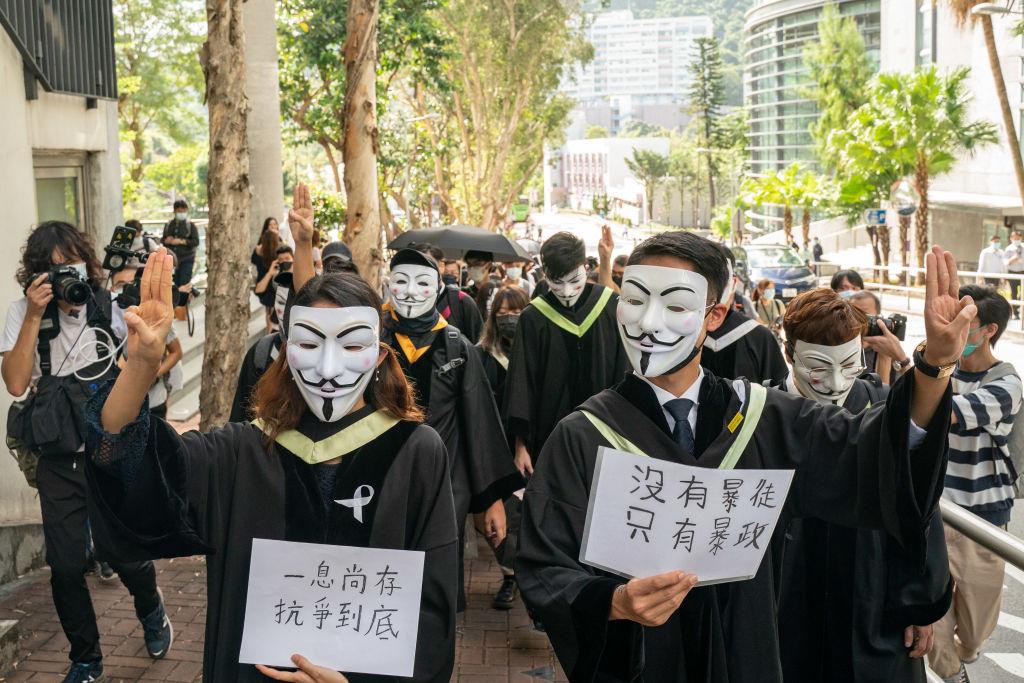Eight people were arrested in Hong Kong on Dec. 7 for their involvement in a local university campus protest last month. The eight included three students and two district councilors from the pro-democracy camp.
News of the arrests first surfaced when Arthur Yeung, who was a candidate for district council elections in November last year, posted on his Facebook page that local police showed up at his home at 7 a.m. local time to arrest him, on suspicion of his role in a march at the Chinese University of Hong Kong (CUHK) on Nov. 19. He said that his home was searched.





